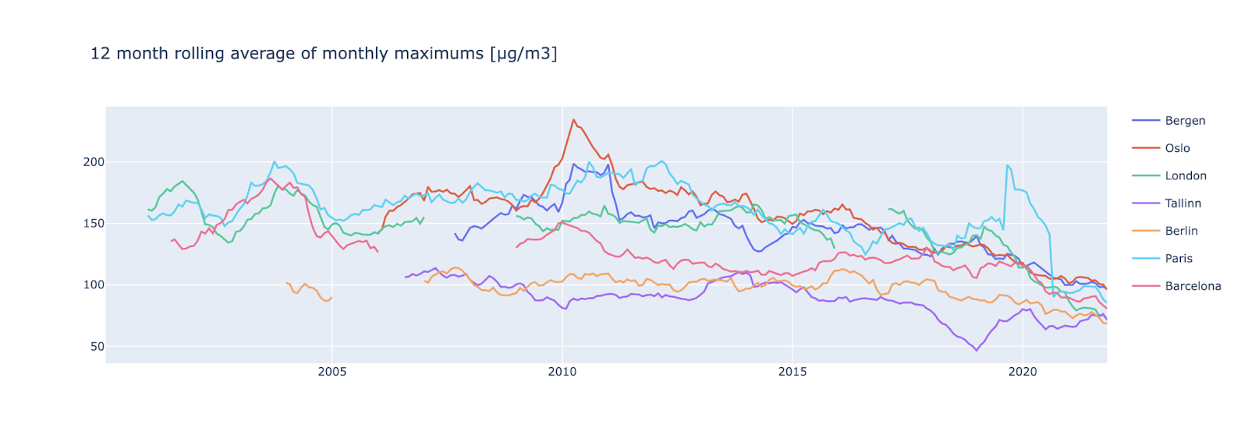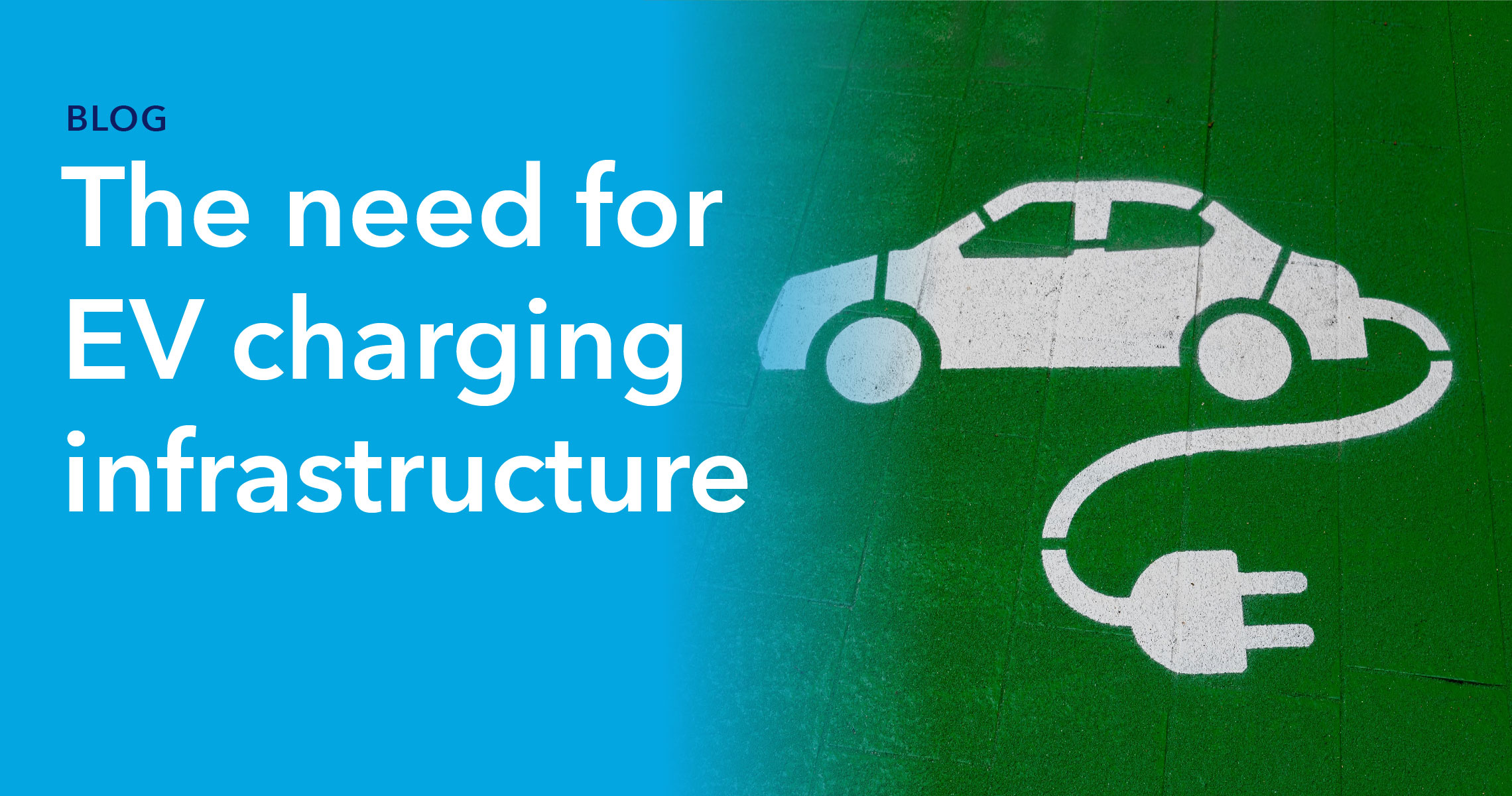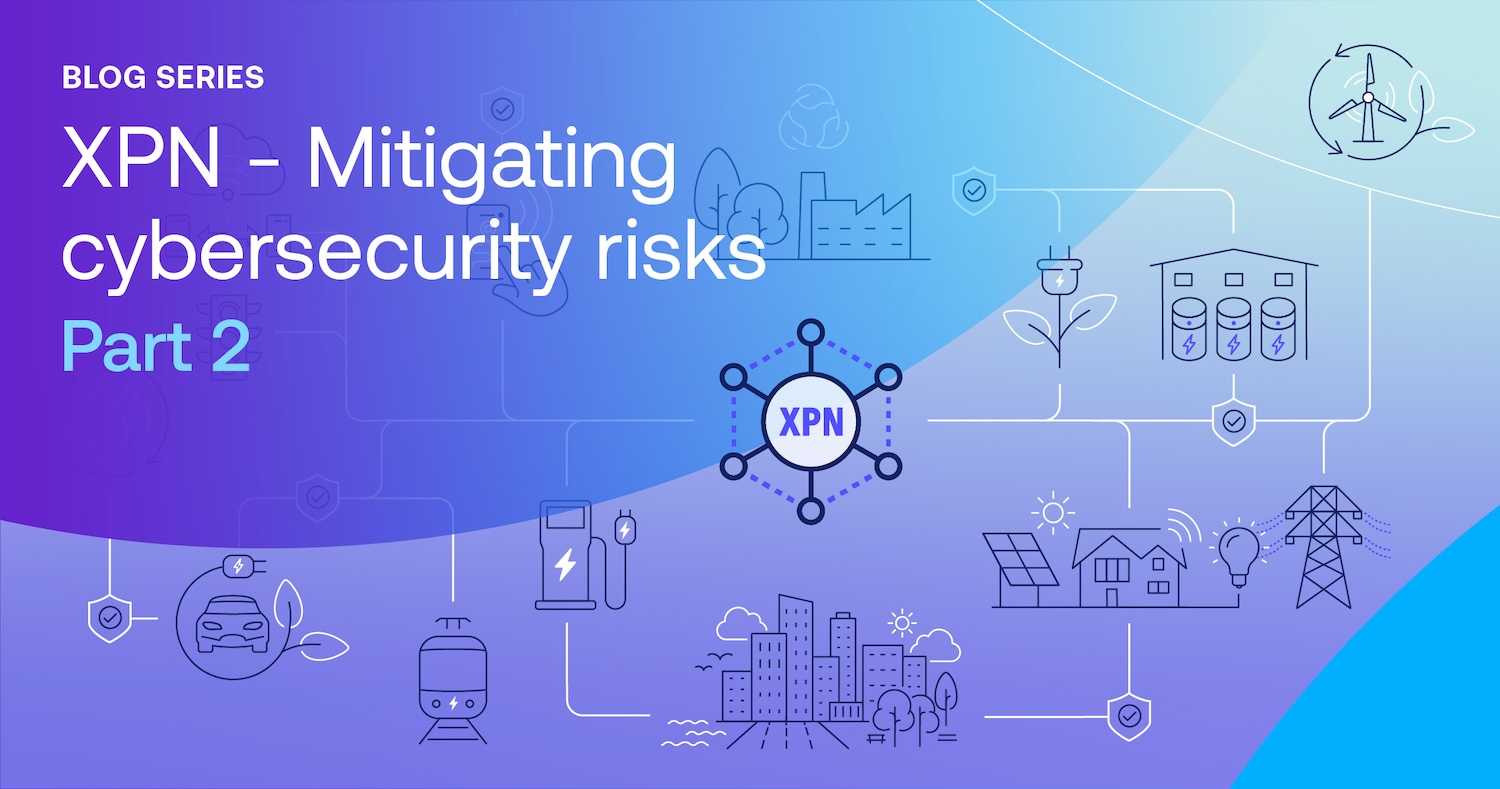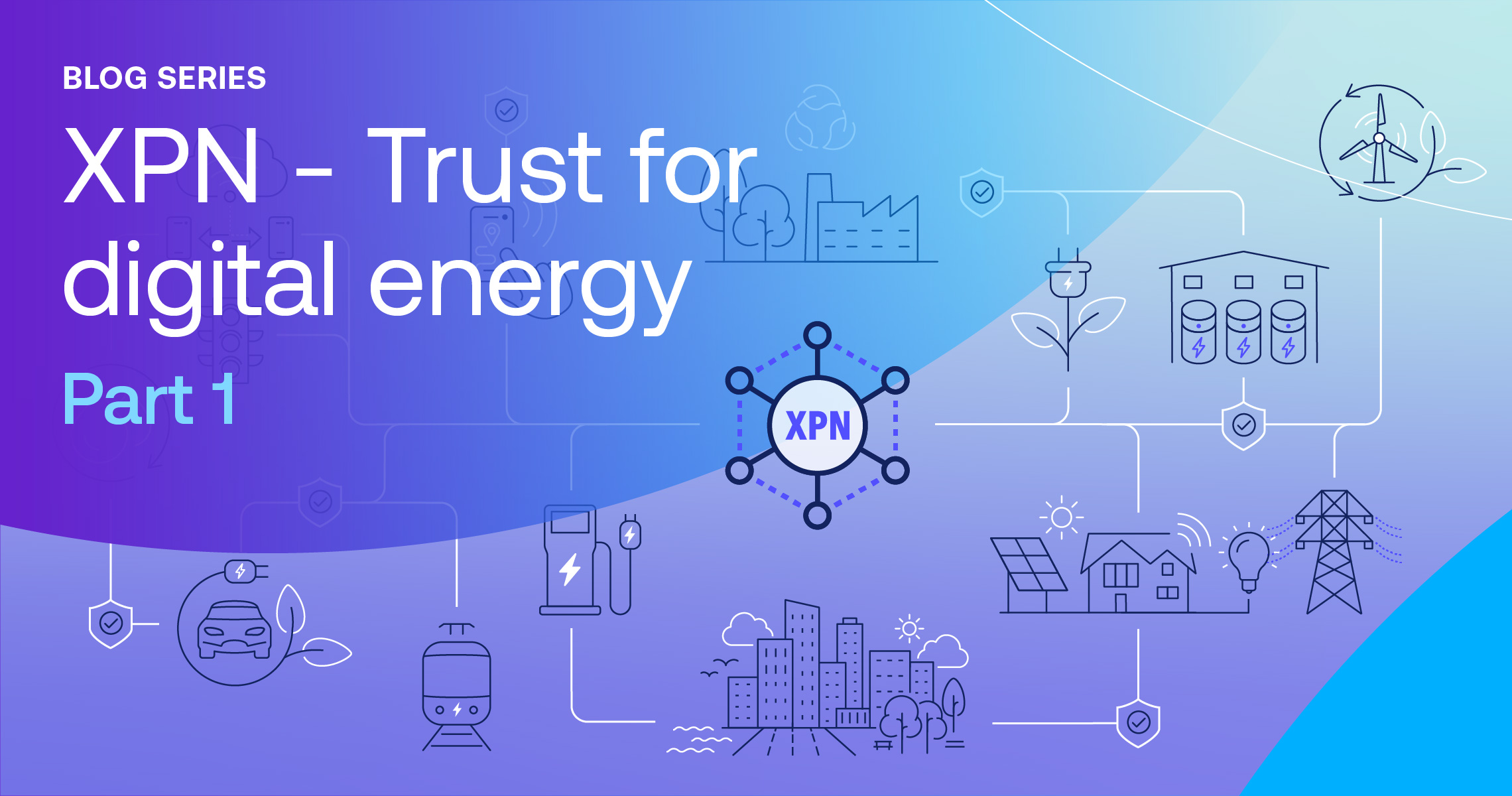Reducing air pollution
There’s a lot of understandable excitement around electric vehicles (EVs) globally, whether as the answer to reducing CO2 emissions or because of the unprecedented value of some of the new companies entering the EV market. On the heels of the recent COP26 conference, there have been some exciting new developments and announcements.
We took a look at one of the original reasons for kickstarting the EV market—reducing air pollution. After all, air pollution has a very direct and well-understood effect on people’s health. To investigate some historical trends, we accessed air quality data for some major U.S. and European cities through the Planet OS Datahub. So where do we stand today?
As you can see in the figures above, the data shows a general leveling off of improvements in air quality, at least for the selected cities. Increasing the overall number of EVs, whether it’s an electric bike, electric car, or an electric bus, will undoubtedly contribute to the trend.

Figure 1. Historical NO2 measurements for several major U.S. cities.

Figure 2. Historical NO2 measurements for several major European cities.
Accelerating the rollout of EV charging infrastructure
In a classic chicken and egg scenario, to increase EV penetration, we also need to improve overall EV charging infrastructure. For example, one of the biggest barriers for EV adoption is limited driving range and driver anxiety around finding a charging station. What’s required to get this charging infrastructure in place is data.
With its EV DataOps application built on the Intertrust Platform, Intertrust can help accelerate the rollout of EV charging infrastructure. To find out more, download our recent white paper, Data shows the need for EV charging infrastructure and a solution for speeding its rollout, or talk to our team.
About Phil Keys
Phil Keys is a Director, Comms & Research for Intertrust Technologies. He is a veteran technology industry observer, marketer, connector, and writer based in Silicon Valley. In addition to 13 years of experience as a Silicon Valley Correspondent for Nikkei Business Publications, Phil has worked for technology companies in both the US and Japan. Phil has spoken publicly in events in Tokyo and Silicon Valley as well as moderated panels in Silicon Valley. He holds a B.A. from the University of California at Berkeley and attended International Christian University in Tokyo.




